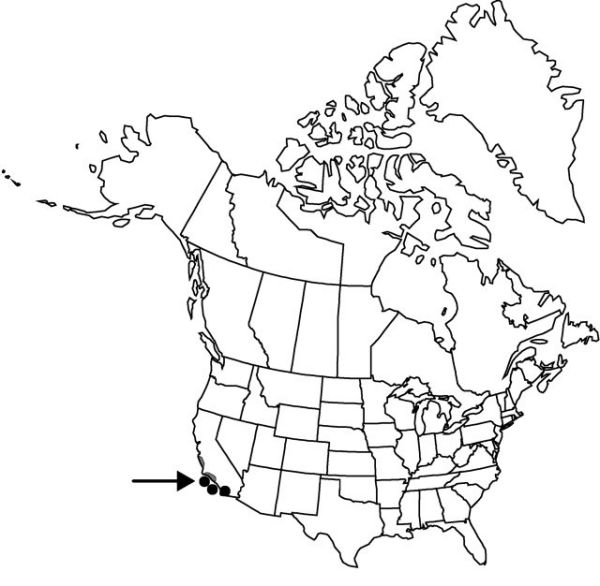Brodiaea jolonensis
Leafl. W. Bot. 2: 111. 1938.
Scape 5–15 cm, slender. Flowers 14–24 mm; perianth bluish violet, tube cylindrical or narrowly campanulate, 7–9 mm, thick, opaque, not splitting in fruit, lobes ascending, recurved distally, 11–18 mm; filaments 1–2 mm, base dilated to form narrow 2-lobed triangular wing; anthers linear, 4–6 mm, apex with V-shaped notch; staminodia leaning inward toward stamens, violet, broad, 5–6 mm, margins 1/4 involute, apex broad, hooded, slightly notched; ovary light purple, 5–6 mm; style 5–7 mm; pedicel 1–4 cm. 2n = 12, 36.
Phenology: Flowering spring (Apr–May).
Habitat: Grasslands, foothill woodlands, coastal prairies, on clay flats
Elevation: 0–300 m
Distribution

Calif., Mexico (Baja California).
Discussion
Brodiaea jolonensis grows along the southern coast of California as well as on Santa Cruz, Santa Rosa, and Santa Catalina islands. T. F. Niehaus (1971) was impressed by the distinctive flavonoid chemistry of this plant compared to that of other members of the genus.
Selected References
None.